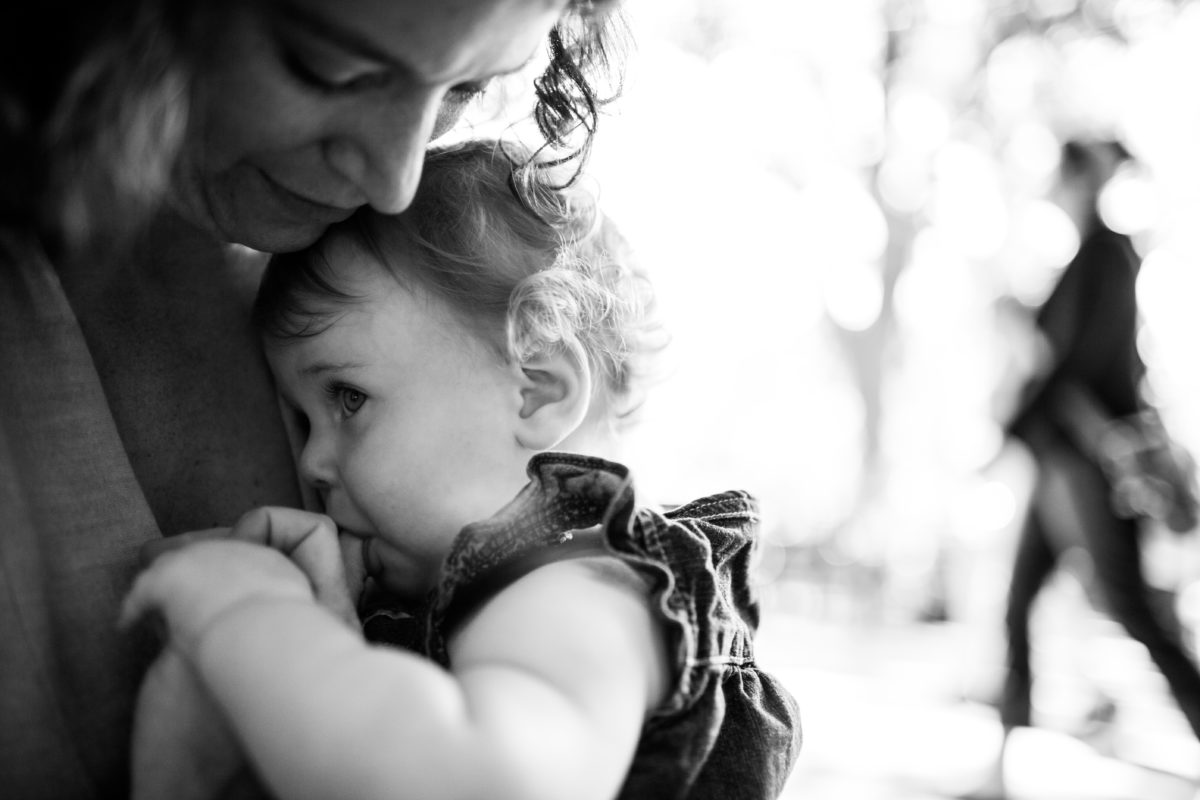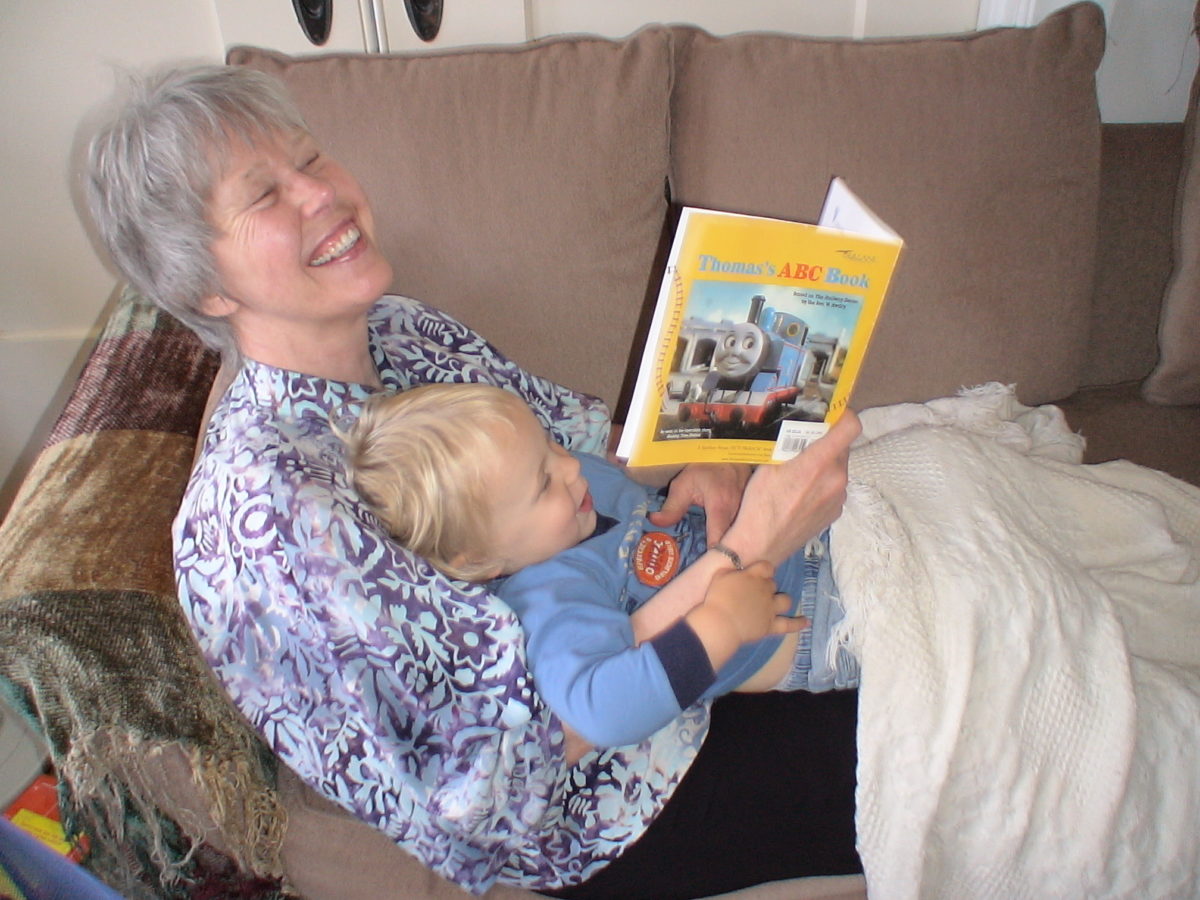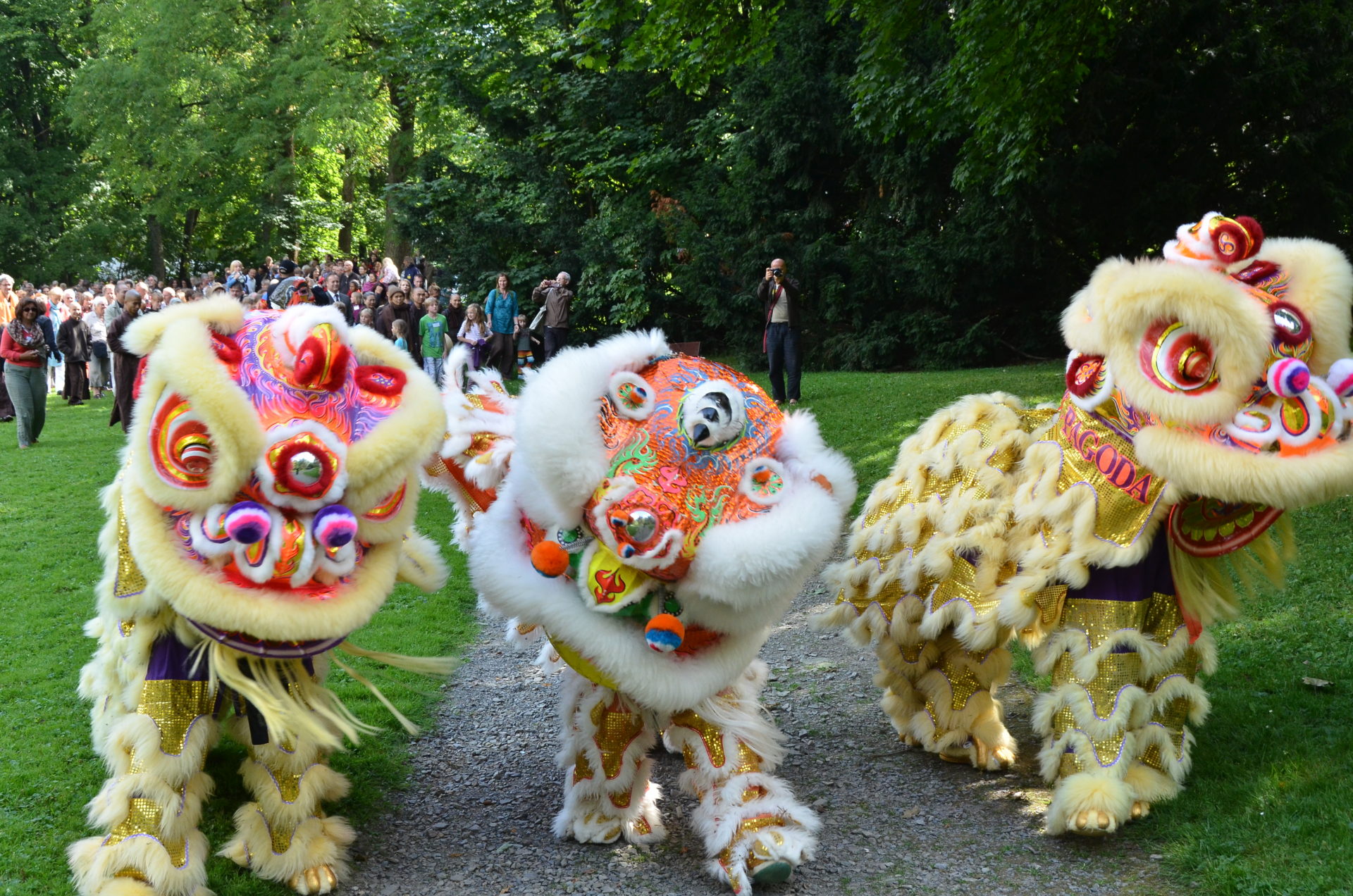By Lennis Lyon

“I will practice taking good care of my anger so I will be gentle.
I want you to be safe with Grandma.”
“I kiss him to sleep,” I reply when my daughter-in-law asks me how I get my two-year-old grandson to take a nap. We read a story, I rub his back, I tell Mateus the names of people who love him,
By Lennis Lyon

“I will practice taking good care of my anger so I will be gentle.
I want you to be safe with Grandma.”
“I kiss him to sleep,” I reply when my daughter-in-law asks me how I get my two-year-old grandson to take a nap. We read a story, I rub his back, I tell Mateus the names of people who love him, and then I say, “I will watch over you; I will keep you safe.” He is usually asleep by then. But if not, I plant tender kisses on his cheeks and forehead until he lolls to sleep.
With the birth of this grandchild, I saw an opening to heal my family and myself. I became a single parent when my son was a year old. My reaction to the trauma of a painful divorce was pervasive fear. I walked on eggshells of unspoken nightly terror and sought the urgency of distraction. I continually pursued social outlets and had difficulty focusing on my growing child. Now with the practice of mindfulness, I know that what children want is our presence, and what I want is to be there to truly enjoy Mateus. With gratitude to the Sangha, I know what being present feels like.
When Mateus comes to my house for the day, I get everything ready: the toys laid out, the diapers on hand, the lunch prepared, so that I can give him my full attention. During his visit I don’t wash dishes, clean the house, or wash clothes. I only answer the phone when it’s his parents calling.
I’m lucky because I have an ease of love for Mateus. At age two and a half, he has been coming to my house every Tuesday for more than two years. I haven’t shown anger; I haven’t raised my voice or used a less-than-friendly tone. So I am in shock when I have a sudden outburst of aggression toward him.
We are at my mom’s apartment. I am changing Mateus’ diaper as he lies on his back on my mom’s bed. Suddenly Mateus reaches up and bites me on my arm, something he has not done before. I instantaneously feel my hand slap him on the face. It is neither a gentle slap nor a strong one, but it must sting. Mateus dissolves in heaves of sobs. I understand that it is the change in our relationship, not the force of the slap, that hurts him so. I cradle him, repeating, “I’m so sorry, Mateus. I’m so sorry.”
When I bring Mateus home, I tell his mom, Tamara. She offers, “But he bit you.”
“Yes, but I did not want to slap him,” I reply. There is a softening, however, in my relationship with Tamara, as she tells me of the times she has felt frustrated as a mother and has regretted her actions.
At home that evening, I remember the teachings on Beginning Anew from Dharma teacher Lyn Fine. First, flower-watering: saying something true that is nourishing to the recipient. Second, expressing beneficial regret. Third, stating one’s intention to prevent similar actions. I write my letter. The next day I read it to Mateus:
“I like the powerful way you play the drums and sing to the music. I enjoy your drum concerts. I am very sorry that I hit you yesterday. I will practice taking good care of my anger so I will be gentle. I want you to be safe with Grandma. Please take good care of your anger. Please use your words when you are angry. I love you, dear grandson.” Mateus replies brightly, “Will you read it again?”
The next Tuesday when Mateus comes to my house, he asks, “Will you tell me when you are getting angry?” “Yes, I will.” When Mateus will not comply with some wish of mine, and I notice anger, I tell him, “I am beginning to get angry.” I expect him to do what I want. I try this several times until I have the insight: I am expecting a two-year-old to take care of my anger! I need to breathe in and out: “Hello, my anger. I see you are there.” I do my best to breathe and walk, or breathe and sit, until the feeling subsides.
It’s been three years since my outburst, and several times, Mateus has asked, “Remember when you hit me, Grandma?” “Yes, I remember,” I say. “I am taking good care of my anger.” I have kept Mateus safe. We have a meditation cave now, a raised closet in my bedroom with room for two cushions. Our paintings are on the closet walls. We have a bell. Either of us can go to the cave, and no one can bother us there. I do my best to notice my anger. I tell Mateus, “I need to go to the cave to calm myself.” I sit; I breathe for maybe ten breaths. When I return, Mateus sees a smile on my face.
Recently, as I was putting Mateus to bed during an overnight at my house, he told me, “Your whole body is in my heart.”
“I’m very happy to be in your heart,” I replied.
He continued, “And my whole body is in your heart.”
I can be present for Mateus because the Sangha is present for me and in me. Thay’s teachings show us the way. I cherish these gifts.

Lennis Lyon, True Silent Forest, practices with Potluck Sangha in Oakland, California. She and Hac Nguyen recently started a Walking in Nature Family Sangha. She met Thay in 1995.

